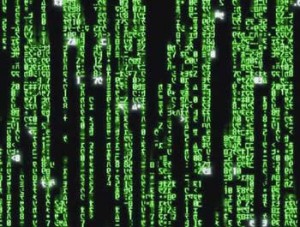There is an important new manifesto floating out in cyberspace and on newsstands.
Provocatively titled “Why the Future Doesn’t Need Us,” it’s by Bill Joy, pioneering software developer and visionary of the “e-economy.” It’s the cover essay in the current issue of Wired magazine (April 2000). In addition to being widely circulated on the Internet the manifesto was recently the topic of discussion by the elite Council on Foreign Relations in New York.
Joy is tapping the same anxieties about runaway technology that have made Hollywood hits out of “The Matrix” and the “Terminator” films, among others in recent years. In his analysis, such sci-fi “dystopias” aren’t that far-fetched. Continued advances in genetics, robotics and computer technologies will make it possible to “replace our species.”
We can see the beginnings of what he is talking about in the extraordinary leaps being made in artificial intelligence, cloning, the mapping of the human genome, and in the advent of techniques for using stem cells to potentially grow any tissue or organ of the human body.
On a philosophical level, these new technologies could redefine our understanding of human nature. More practically, these technologies, controlled not by nation states but by individuals and businesses, could easily fall into the wrong hands, raising the specter of high-tech terrorist acts such as the spreading of genetically engineered deadly diseases.
 Joy writes: “It is no exaggeration to say that we are on the cusp of the further perfection of extreme evil, an evil whose possibility spreads well beyond that which weapons of mass destruction bequeathed to the nation states, to a surprising and terrible empowerment of extreme individuals.”
Joy writes: “It is no exaggeration to say that we are on the cusp of the further perfection of extreme evil, an evil whose possibility spreads well beyond that which weapons of mass destruction bequeathed to the nation states, to a surprising and terrible empowerment of extreme individuals.”
However sincere, Joy’s vision is a strange view of apocalyptic prophecy mixed with personal confession, overlaid with a nonreligious hope that ethics and a sense of the common good will prevail. His vision appears, indeed, to be a species of the same techno-materialist worldview that has given rise to the evils he now warns us against.
His own “fix” for the problem is proposed with all the earnest pluck of a “dot-com” e-business ad. Basically, he calls for what amounts to a pan-global agreement among scientists, businesses, and nations to “just say no” to scary new technologies.
Then he proposes the adoption of the Dalai Lama as guru-chaplain for high-tech workers, saying that the Buddhist leader’s ideas of “love and compassion,” “universal responsibility,” and “interdependency” should serve as the “new ethical basis” for the scientific establishment.
Joy doesn’t seem to realize that our problems with technology can’t be solved like a simple computer glitch, with some sort of ethical “patch.” We need a conversion, a complete change in how we understand human nature and destiny, and how technology fits into God’s plan for us.
We need not wisdom from the East, but a reconnect with the religion that is the foundation of Western civilization—Christianity, the cultural context that gave rise to these scientific and cultural achievements. We can create such awesome new technologies only because we ourselves are created in the image of the Creator, who has given to us the gifts of intellect and creativity.
Our technologies can only come to haunt us when we forget who we are, when through sin we try to be “gods” ourselves, to control our own destinies without reference to God.
Really, Joy has it backward. The union of man with God is our destiny, not the union of man and machine. We are supposed to become “divinized” people, not spiritual hardware.
Originally published in Our Sunday Visitor (April 16, 2000)
© David Scott, 2009. All rights reserved.


